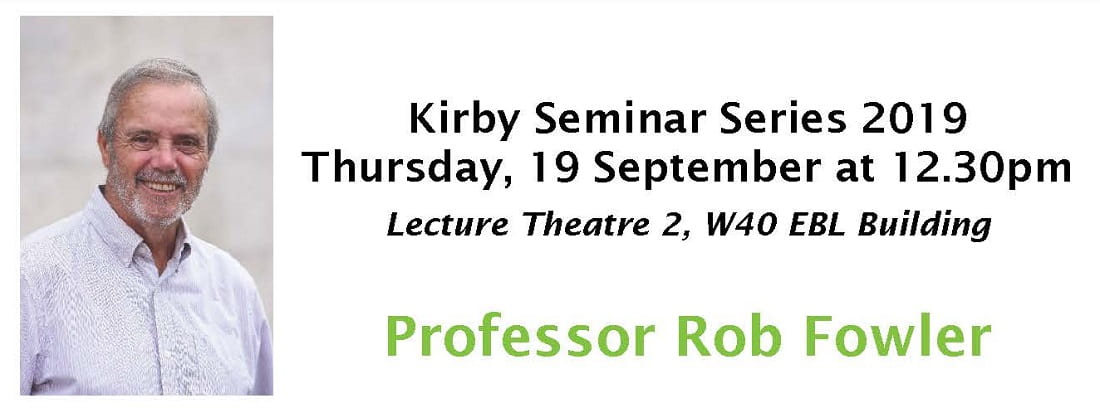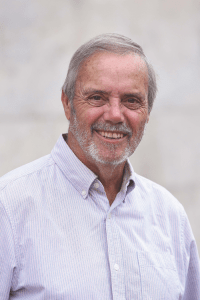Kirby Seminar Series 2019
Thursday, 19 September at 12.30pm
Lecture Theatre 2, W40 EBL Building
Professor Rob Fowler
Adjunct Professor Rob Fowler has worked in the field of environmental law for over forty years, both in Australia and internationally. At the University of Adelaide Law School, he co-founded the Australian Centre for Environmental Law (ACEL) in 1990 and was Dean of the Law School from 1995-98. In 2000, he was appointed to a Chair in International Environmental Law at the University of South Australia (UniSA). Since 2008, he has held an Adjunct Chair in the Law School at UniSA. He has served as Chair of the IUCN Academy of Environmental Law (IUCNAEL) (2008-2012); as a member of the Board of the South Australian Environment Protection Authority (2011 – 2017); and as Chair of the South Australian Environmental Defender’s Office (2001-2009). He also has served as President of the Conservation Council of South Australia (2011-2014) and as a Vice President of the Australian Conservation Foundation (2008- 2015). He currently serves as the conservation representative on the Lake Eyre Basin Community Advisory Committee and is also a member of the Wakefield Futures Group (see http://wakefieldgroup.org/ ).He has twice been a visiting scholar in the USA under Fulbright Scholarships; in 1991 (Lewis and Clarke Law School) and in 2015 (George Washington University Law School). From 2014-18, he directed for IUCNAEL a project funded by the Asian Development Bank to deliver training in environmental law teaching to over 300 legal scholars from across 14 Asian countries. He also served as the convener of the Australian Panel of Experts in Environmental Law (APEEL), which in 2017 produced the Blueprint for the Next Generation of Environmental Laws in Australia (see www.apeel.org.au). In 2011, the Law Council of Australia recognized him for his “exceptional contribution to the development of environmental law”.
presents
Sustainability and the Law
There is mounting evidence that a transition to sustainability is required in the coming decades if we are to avoid some form of significant collapse on a global scale. This transition will require multiple responses across different disciplines and stakeholders and must encompass all three “pillars” of sustainability (economic, social and environmental). This presentation will consider the role of law as an instrument to support and facilitate this transition, acknowledging at the same time that law alone cannot deliver it. A starting point could be the major reform of two existing areas of law: environmental law and laws endorsing various principles of sustainable development, each of which has evolved rapidly in recent decades. However, whilst such reform is highly desirable, this alone will be unlikely to provide adequate support for the required transition.
In addition, a new body of innovative laws that focuses specifically on the goal of sustainability is needed (“sustainability laws”). This topic is relatively uncharted territory. A starting point could be an examination of how innovative laws might address the underlying drivers of collapse (such as excessive consumption, population and economic growth). For example, a radical reform of resource allocation laws might allow for extraction only where it is possible to replace each resource (if renewable) or to reuse or recycle it (if non-renewable). At the international level, the idea that sovereignty includes the right to exploit natural resources may need to give way to an over-riding duty upon nations to conserve and protect their resources.




